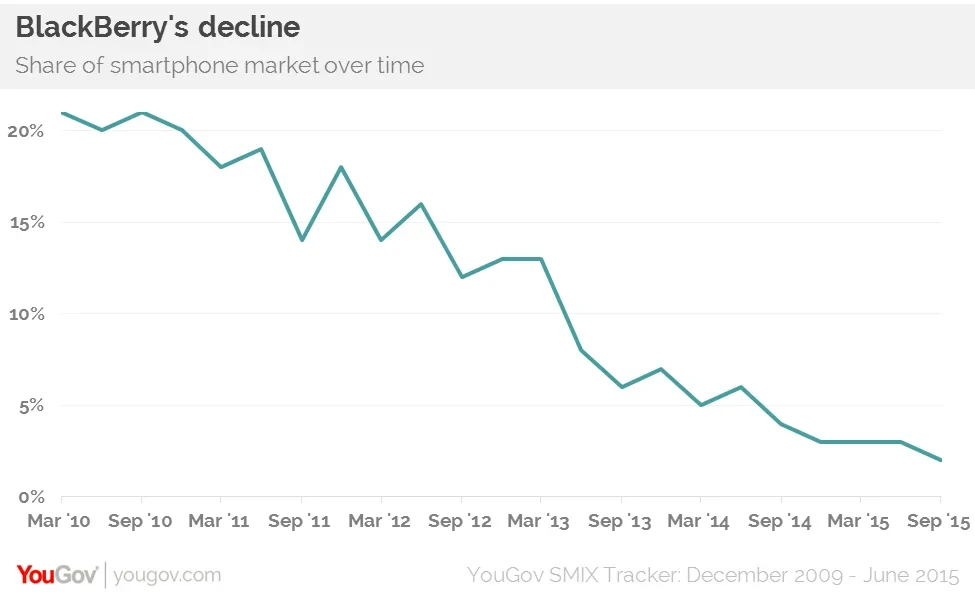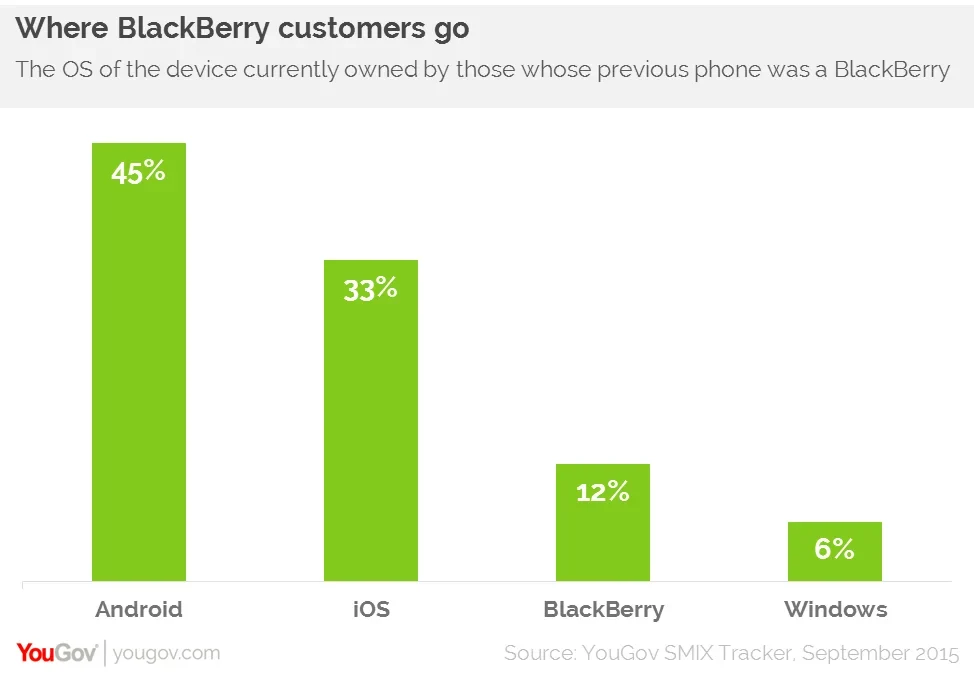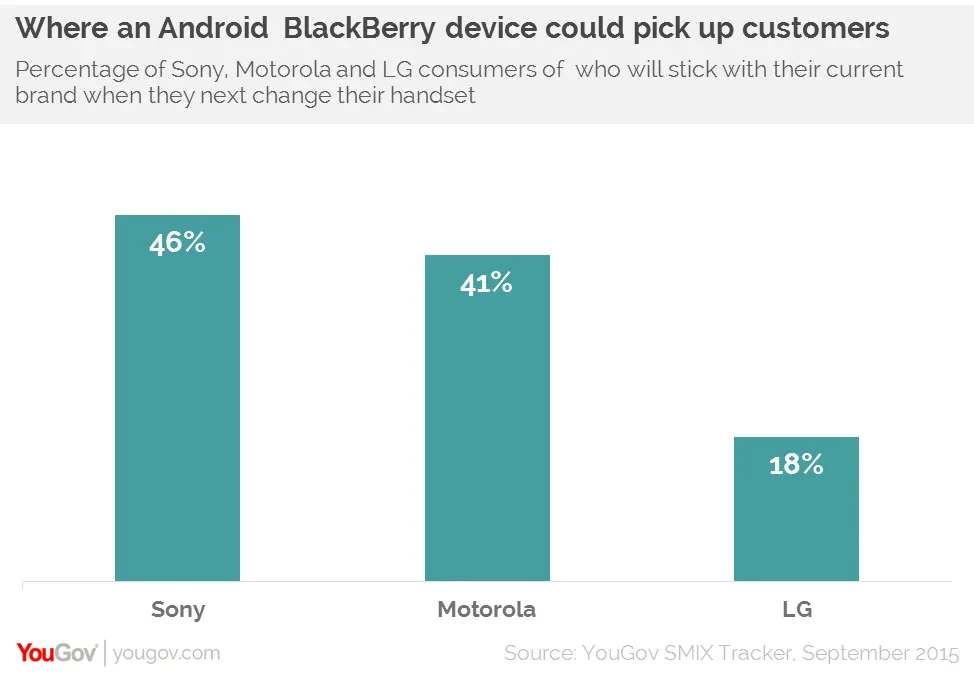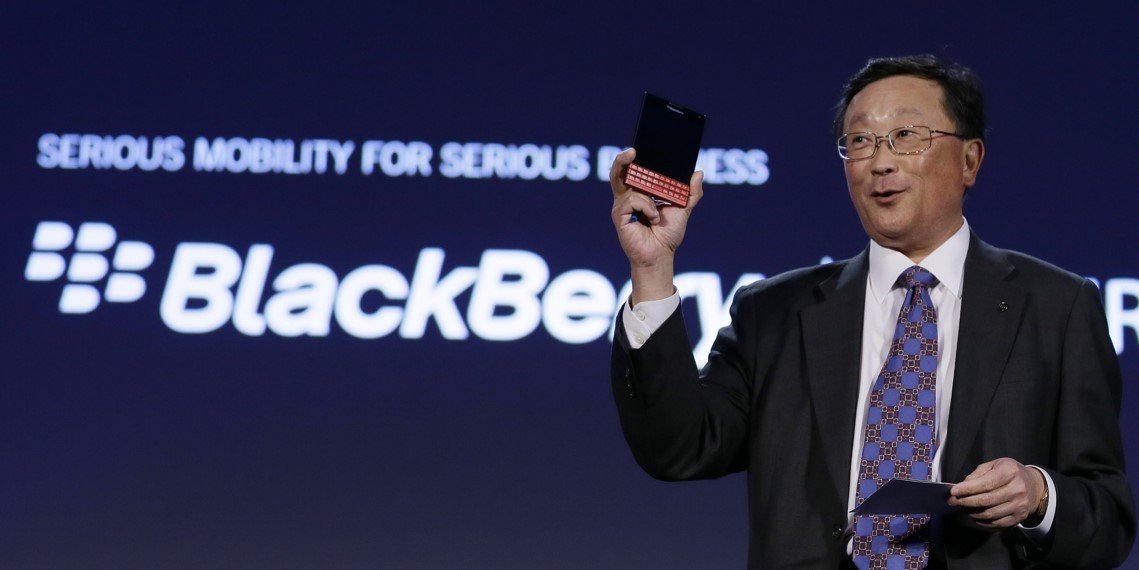BlackBerry has been a brand on the lips of consumers and industry experts for all the wrong reasons over the past few years.
The rising tide of the smartphone has left the manufacturer stranded. While the iPhone led in the ever-expanding smartphone market, most other players gravitated towards Android with its promise of good apps and user experience. Both took customers from BlackBerry.
The Canadian brand will be hoping that by offering a phone with an Android OS it can turn back the clock and re-gain these former customers (as well as holding on to those that have so far stayed with it). The brand seems to be pinning its hopes on former customers’ nostalgia getting the company’s fortunes back on track.
It certainly has to do something as at present the brand’s situation is dire and getting worse. In recent years BlackBerry has lost a lot of customers to rival manufacturers. Our latest figures show that its share of the UK smartphone market has fallen from 21% in September 2010 to 2% now.

It should, of course, be noted that the smartphone market itself has expanded massively in this time. But even taking this into account BlackBerry has still haemorrhaged customers to rivals in the past five years. However, there are a couple of thin shards of light in this unremittingly grim picture that the manufacturer will follow in the hope they lead them to safety.
The first is that the brand still has high loyalty amongst current customers who are expecting to get a BlackBerry device next time. Essentially, if they haven’t left already then they are unlikely to do so.
These consumers seem to be laggards by nature as 43% of them have low end handsets and 39% have mid-range ones. They are likely to stick with the manufacturer’s devices through the launch of an Android device, providing a good beachhead in the new market.
The second, potentially more rewarding, piece of brighter news is that with its latest move the brand has the potential to appeal to those customers it has lost in the past five years. Among those whose previous handset was a BlackBerry, more than four in ten (45%) moved to a manufacturer with Android operating systems, one third (33%) got iPhones, and just over one in twenty (6%) now have Windows phones. Just 12% stayed with BlackBerry.

Its strategy should not be to target high-end users such as iPhone owners or those on an Android based high-end model such as a Samsung Galaxy S6 or an HTC One – these owners are likely to stay on their brand of handset. Instead, if it is going to come from anywhere it will come from the smaller Android brands such as Sony, Motorola and LG.
Our data show that these Android-based manufacturers have lower brand loyalty then their larger rivals. Just under half (46%) of Sony customers expect a Sony again, with 41% of Motorola expecting to get Motorola and just under a fifth (18%) reckon they will stay with LG when the time comes to replace their device. Some 50% of these brands’ customers have previously owned a BlackBerry.

Back in September 2010 when it was at its peak, people said they used BlackBerry for its reliability (39%), features (47%), and good quality handsets (39%). However, where it fell flat was that its software wasn’t performing and it wasn’t able to offer good apps or a good web experience in comparison to iPhone or Android devices.
When BlackBerry customers left the brand the key reasons was that they were attracted to the number of apps (42%) and the type of apps (41%) available. Just over four in ten (42%) chose their handset because they thought it was innovative/state of the art.
An Android BlackBerry could increase the chance of at least some of these consumers considering returning to the brand again. Nine in ten (90%) Android users expect to get an Android-based handset in the future. Amongst those that expect an Android brand in the future, 50% of them are mid-range and low-end handset customers which could be an ideal start for BlackBerry to bear fruit.
In a market awash with choices between very similar products consumers remember solid traits such as reliability and quality and it is the memory that BlackBerry will have to evoke with its first Android device.
If it can offer up a more flexible user experience in terms of browsing and apps BlackBerry’s Android could, just could, stand a chance of picking up lapsed customers that have shifted to smartphone manufacturers with a smaller market footprint. However, nostalgia will only get it so far. It will also need a good phone.
Find out more about YouGov's Digital, Media and Technology research
This analysis was originally published in Mobile News
Image from PA









